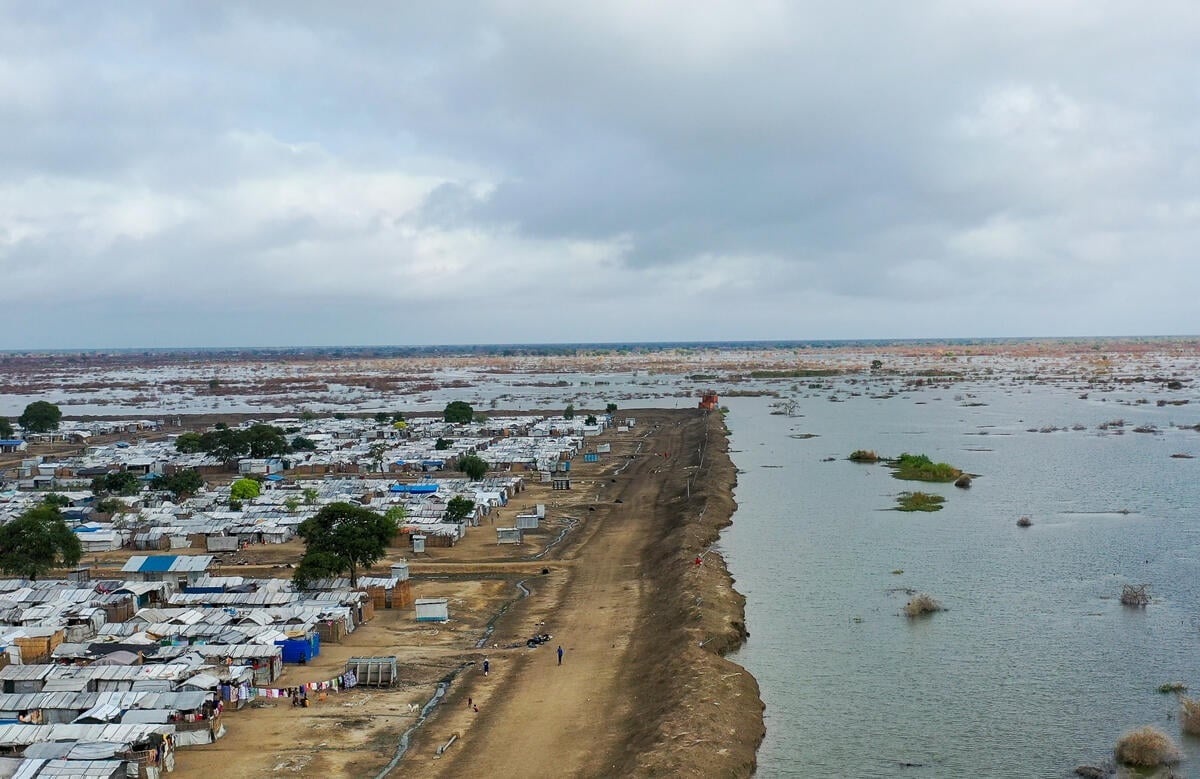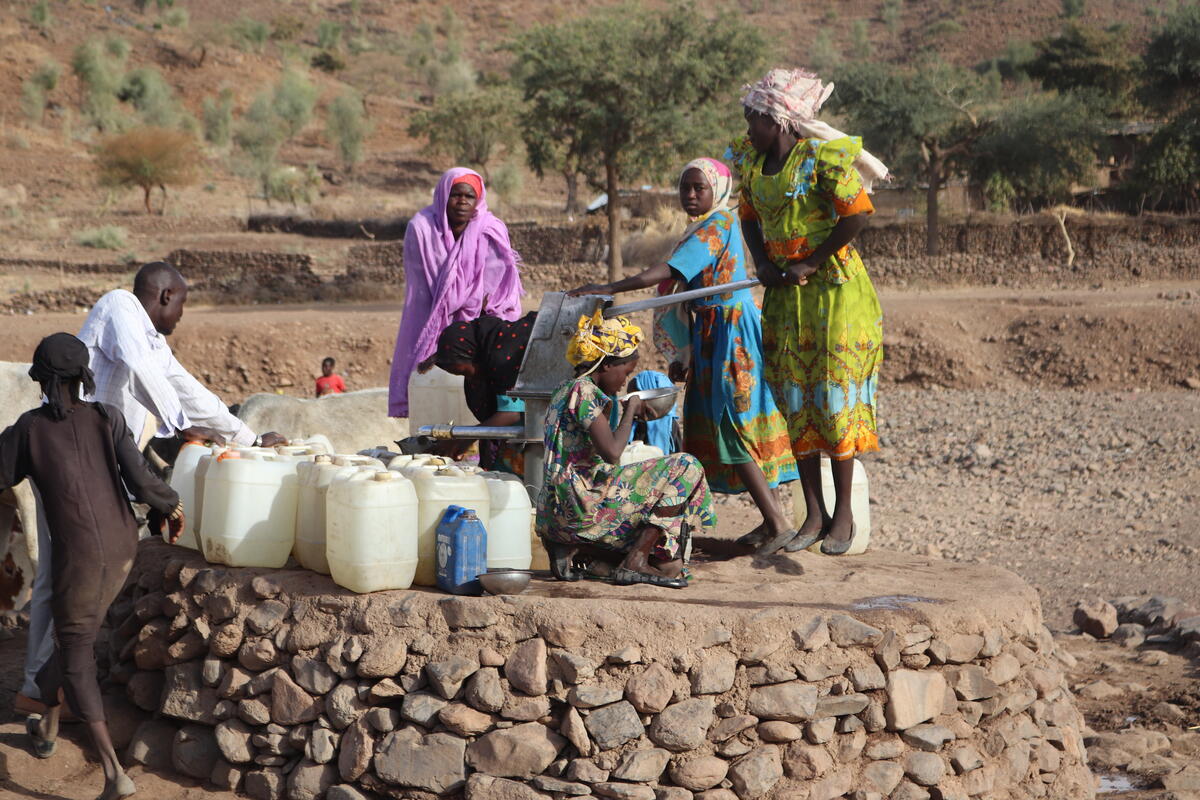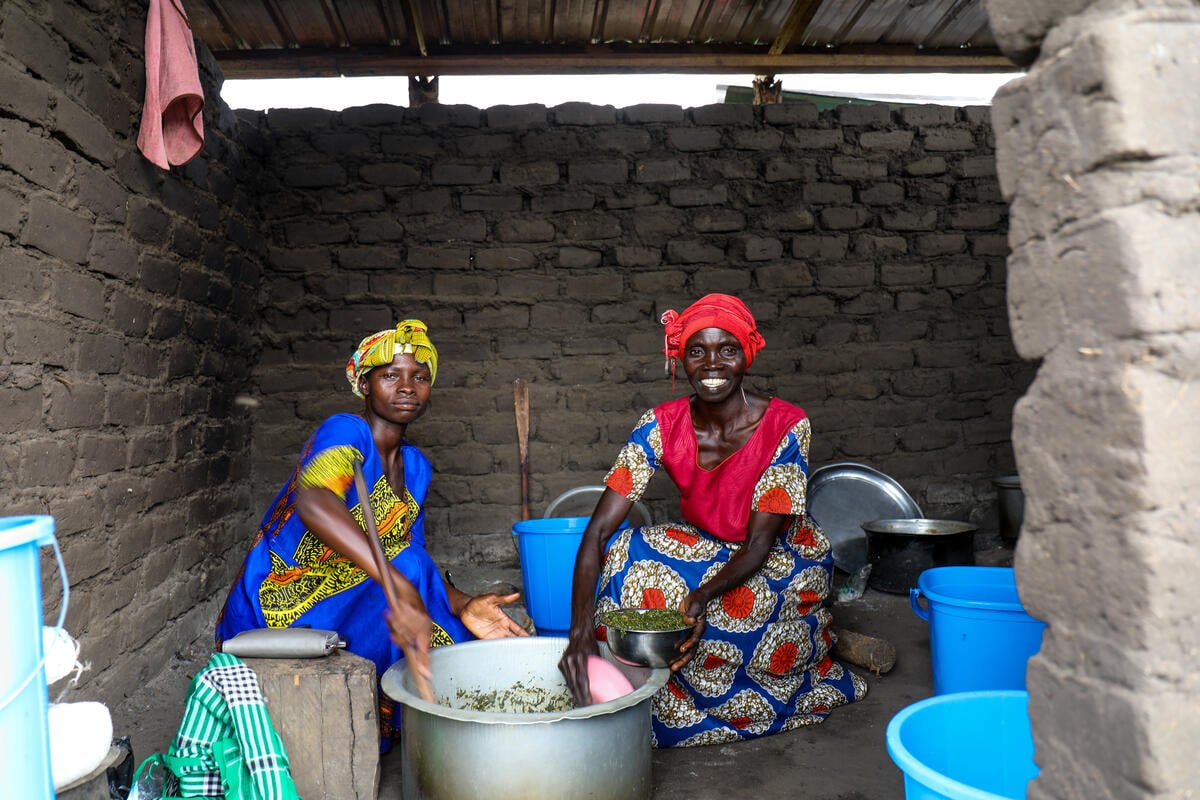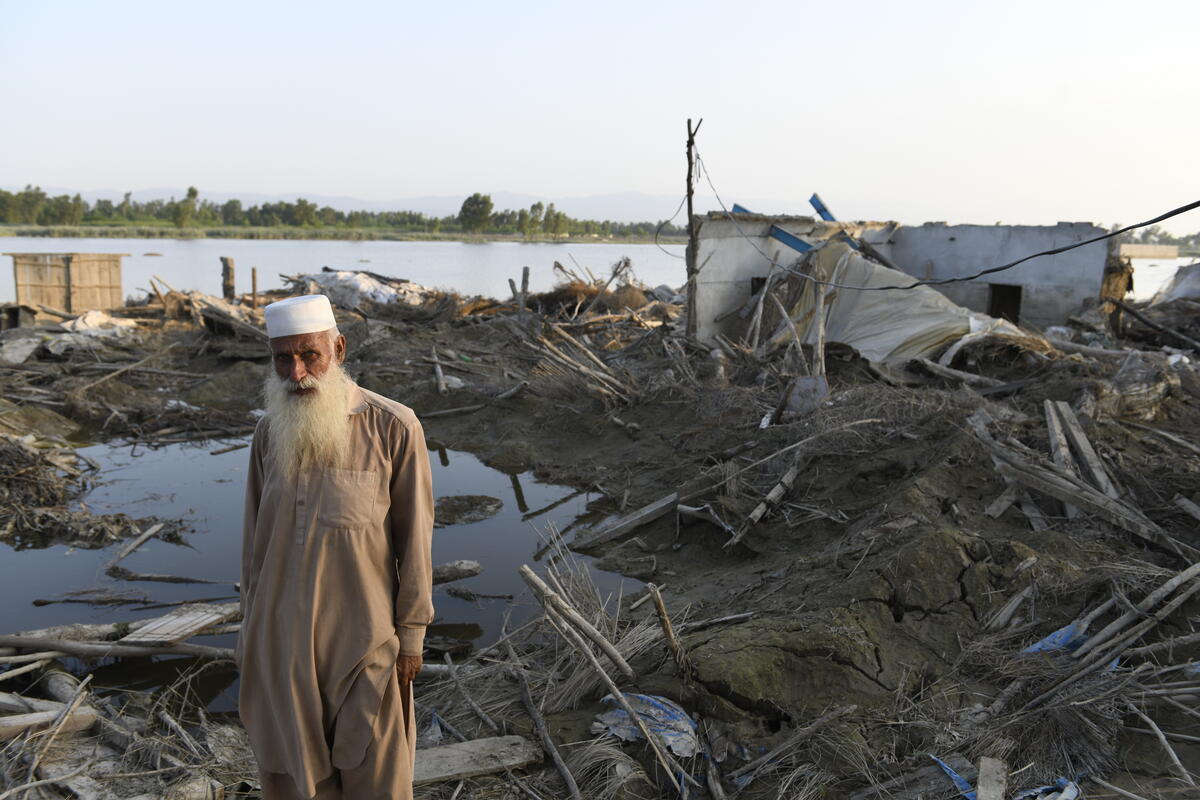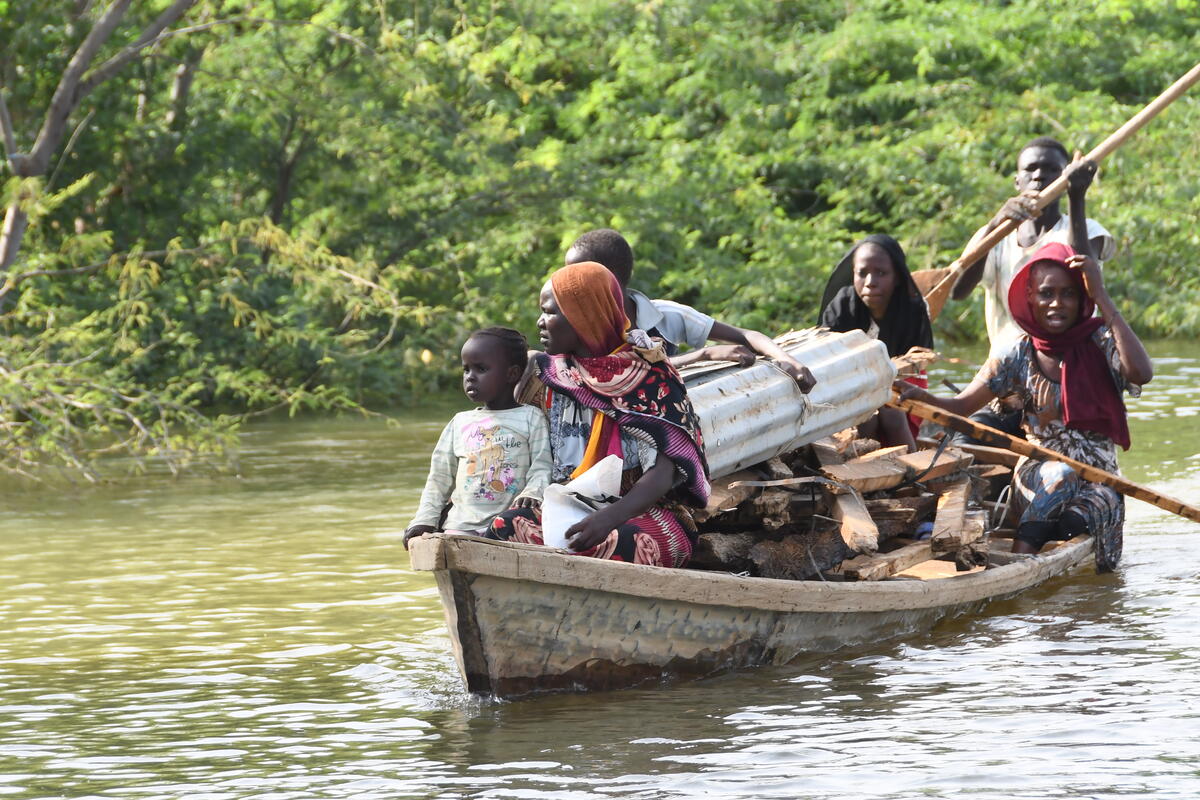UNHCR starts relocation of Sudanese refugees from flood-prone camp
UNHCR starts relocation of Sudanese refugees from flood-prone camp

MABAN, South Sudan, May 7 (UNHCR) - The UN refugee agency has this week begun the relocation of almost 20,000 Sudanese refugees from the flood-prone Jamam transit site in South Sudan's Upper Nile state to a new camp on higher ground.
The operation began on Monday and UNHCR hopes to complete the move to Kaya, which like Jamam is located in Upper Nile's Maban County, before the end of June and the advent of the rainy season, when movement will be difficult.
"UNHCR, together with partner humanitarian agencies, will transport an average of 450 refugees each day, with the most recent arrivals being among the first to make the journey," the agency said in a press release, adding that between 40 and 50 refugees have been arriving in Maban County daily over the past four months.
The refugees, mainly women, children and a growing number of older people, have escaped conflict and hardship in Sudan's Blue Nile state, but the influx is likely to slow when the rains come.
About 300 people joined Monday's first convoy to Kaya, which is also more suitable because it is built on sandy soil that allows for water drainage. The crowd waiting to board buses included Hawa Aman, a widow, and her nine-year-old daughter, Asha.
They waited quietly, traumatized by the memory of an air strike against their village, Gisi, in March and their subsequent flight and arduous journey to South Sudan. She later learned that two of her eight children were killed in the attack and two others are safe with relatives in another camp.
"All I could think of was getting as far away from Gisi as possible," she recalled. "I did not even have the time to get water or food. We just started walking." But her youngest children soon began to struggle and three of them died in the forest.
"I prayed, 'God, give me the strength to take the remaining' [three] children to a safe place,' and he did," Hawa told UNHCR, adding that they ran into UNHCR staff not long after entering South Sudan at the New Guffa entry point. Like other new arrivals, they were given water and food before being taken to Jamam.
And now, Hawa and her three surviving children have been relocated to their new home at Kaya, the fifth refugee camp to be opened by UNHCR in Maban. All families will be given a plot of land to build their home.
Adan Ilmi, UNHCR's senior operations coordinator in the area, said all new arrivals at Jamam would be taken directly to Kaya refugee camp, "where humanitarian assistance ranging from the provision of food and non-food items like tents, shelter materials, jerry cans, buckets, mosquito nets, sleeping mats and kitchen sets, health services, water and sanitation facilities await them."
The other benefits of Kaya include access to education for children, while there is also sufficient forest to provide shade and firewood for cooking. There are currently water and sanitation facilities for up to 6,000 people and extra water is being trucked in while additional facilities are being installed. The camp has the potential to shelter up to 35,000 people.
Hawa, meanwhile, is still struggling to come to terms with the loss of her children and was receiving trauma counseling in Jamam. But she said she was "eternally grateful" to UNHCR for saving her and her surviving children. "I was just counting the days before the next one of my children fell down never to rise again," she said.
She has been encouraged to interact and engage socially as much as possible with other women in the new camp. "I know I must, because if I don't I will lose my mind," she said. "It may not be now or tomorrow, but one day I will definitely be able to smile and laugh again like all these people around me."
By Pumla Rulashe in Jamam, South Sudan


